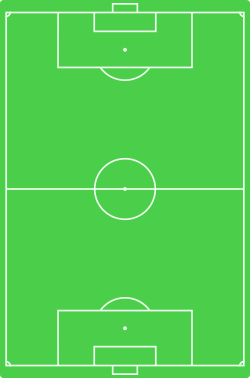 | |
| Season | 2005–06 |
|---|---|
| Dates | 13 August 2005 – 7 May 2006 |
| Champions | Chelsea 2nd Premier League title 3rd English title |
| Relegated | Birmingham City West Bromwich Albion Sunderland |
| Champions League | Chelsea Manchester United Liverpool Arsenal |
| UEFA Cup | Tottenham Hotspur Blackburn Rovers West Ham United |
| Intertoto Cup | Newcastle United |
| Matches | 380 |
| Goals | 944 (2.48 per match) |
| Top goalscorer | Thierry Henry (27 goals) |
| Best goalkeeper | Pepe Reina (20 clean sheets) |
| Biggest home win | Arsenal 7–0 Middlesbrough (14 January 2006) |
| Biggest away win | Everton 0–4 Bolton Wanderers (17 December 2005) Middlesbrough 0–4 Aston Villa (4 February 2006) Fulham 0–4 Arsenal (4 March 2006) |
| Highest scoring | Charlton Athletic 2–5 Manchester City (4 December 2005) Wigan Athletic 4–3 Manchester City (26 December 2005) Arsenal 7–0 Middlesbrough (14 January 2006) Blackburn Rovers 4–3 Manchester United (1 February 2006) Fulham 6–1 West Bromwich Albion (11 February 2006) Middlesbrough 4–3 Bolton Wanderers (26 March 2006) |
| Longest winning run | 10 games [1] Chelsea Liverpool |
| Longest unbeaten run | 13 games [1] Chelsea |
| Longest winless run | 14 games [1] Sunderland |
| Longest losing run | 9 games [1] Sunderland |
| Highest attendance | 73,006 Manchester United 4–0 Charlton Athletic (7 May 2006) |
| Lowest attendance | 16,550 Fulham 0–0 Birmingham City (13 August 2005) |
| Total attendance | 12,876,213 |
| Average attendance | 33,885 |
← 2004–05 2006–07 → | |
The 2005–06 FA Premier League (known as the FA Barclays Premiership for sponsorship reasons) was the 14th season of the Premier League. It began on 13 August 2005, and concluded on 7 May 2006. The season saw Chelsea retain their title after defeating Manchester United 3–0 at Stamford Bridge towards the end of April. On the same day, West Bromwich Albion and Birmingham City were relegated, joining Sunderland in the Championship for the following season. Chelsea matched the record number of wins they set the previous season, with 29 wins, albeit with more defeats. [2] [3]
Contents
- Season summary
- Teams
- Stadiums and locations
- Personnel and kits
- Managerial changes
- League table
- Results
- Top scorers
- Awards
- Monthly awards
- Annual awards
- PFA Players' Player of the Year
- PFA Young Player of the Year
- PFA Team of the Year
- PFA Fans' Player of the Year
- FWA Footballer of the Year
- Premier League Player of the Season
- Premier League Manager of the Season
- Premier League Golden Boot
- Premier League Golden Glove
- Premier League Fair Play League
- Attendances
- See also
- References
- External links




